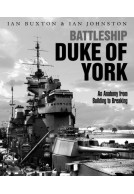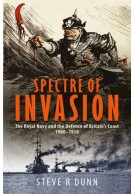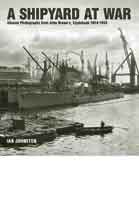Pendant Numbers of the Royal Navy (Hardback)
A Record of the Allocation of Pendant Numbers to Royal Navy Warships and Auxiliaries

Pages: 456
Illustrations: 32 black and white illustrations
ISBN: 9781526793782
Published: 28th May 2021
(click here for international delivery rates)
Order within the next 2 hours to get your order processed the next working day!
Need a currency converter? Check XE.com for live rates
| Other formats available | Price |
|---|---|
| Pendant Numbers of the Royal Navy ePub (89.0 MB) Add to Basket | £9.98 |
Pendant (or pennant) numbers have been used by individual ships of the Royal Navy for purposes of identification for more than 100 years. They were also used in all the navies of the British Empire so that ships could be easily transferred from one navy to another without changing her number. They offer the simplest and clearest way to identify a ship, but until now there has been little in the way of consistent and accurate information, and certainly no single location where you can look up or research complete pendant numbers.
The book is designed as an easy-to-use reference work and as such is, in the main, composed of alpha-numeric listings to enable the user to find and identify warships by reference to ship name and to identify specific pendant numbers assigned to that name; or by pendant number to identify specific vessels assigned that number at various times.
It begins with an introduction and a brief history of visual signalling used by the Royal Navy before industrialisation, and explains how the large numbers of identical ships being built brought about the need to identify specific ships within fleets to aid signalling and tactical deployment. There follow chapters covering the pendant numbers of the surface fleet and submarines (which stopped using them once boats began to spend so little time on the surface), and then pedant numbers by ship name.
A significant chapter lists the pendant numbers assigned to the British Pacific Fleet during the Pacific campaign of WWII together with an explanation of why numbers were assigned, and an examination of missing ‘A’ series pendants known to have been carried by some vessels during the conflict. The BPF numbers have only recently come to light and there is still much that is not known but this section provides the most comprehensive study of available data at this time. There is also an appendix covering deck letters assigned to aviation capable ships.
This is a genuinely new and significant reference book and is destined to become a major new aid for Royal Navy warship and auxiliary identification.
"For those who collect or do research using warship photographs, or are merely fans of masses of arcane data, this book is essential. However, it also contains much material of a wider, more general naval historical interest."
Warship Annual - 2023
Attractively produced, Pendant Numbers contains a clear arrangement of tabular information and nicely-spaced entries that make the book logical and easy to use. The captions under the excellent photographs add a welcome extra dimension by underscoring various points about how pendant numbers and other distinguishing devices have evolved. This new reference book is an interesting new venture that should appeal to warship aficionados.
The Northern Mariner/Le marin du nord
This is an excellent reference book and partner to two of the Authors "Ships of the Royal Navy." book.
Navy Net
A complete history of pendant numbers cross referenced to Royal Navy ships of all shapes and seizes, from Aircraft Carriers to X Craft Submarines.
It has been indexed in a very comprehensive way and has some excellent black and white Ship's photos.
I give it full marks and recommend it to any Royal Navy historians.
Read the full review here
The concept is so simple that I'm surprised this hasn't been done before. Maybe it has. Those numbers on the side of ships mean something, and this book tells you what they mean. This will be essential reading and will probably become highly collectable in future. There are few books for which the term 'indispensable' can honestly be used. This is one of those.
Paul Nixon
5 stars
Read the full review here
The fifth edition of this standard reference work contains updated information. The authors have included significant new information on the British Pacific Fleet in WWII – Most Highly Recommended
Firetrench
Read the full review here
Authors Ben and Steve have compiled a significant list of Royal Navy pendant numbers which will be invaluable to maritime historians and the like. Painstaking work.
Books Monthly
Ships of the Royal Navy and Pendant Numbers of the Royal Navy should find a prominent place on the shelves of any self-respecting researcher.
Denis Wilkinson, The Nautical Research Journal
If you need to identify a warship via its Pendant Number, then this book is essential as it must be the best reference work on this subject. Many hours
Dr Stuart C Blank
must have been spent by the authors collating these numbers and tabulating their usage. It is an exceptional piece of work, and the two authors need to be commended.
The sheer volume of information held in here is amazing, and will be a valuable reference source for any naval modeller or historian, maybe with an old photo where the number can be seen and you wish to identify the vessel itself. As individual vessels within modern warship classes look so much alike, this will be invaluable. A key reference for your bookcase.
Military Model Scene
Read the full review here
Read the full review here
Australian Naval Institute
About Steve Bush
STEVE BUSH joined the Royal Navy in 1978 and saw several operational deployments to the Gulf, including the 1991 Gulf War. On leaving the navy in 2000 he joined Maritime Books, editing their in-house publications, while he took up the position of Editor of Warship World and Warship World Pictorial Review magazines in 2003. He is the author of a number of books including British Warships and Auxiliaries.
About Ben Warlow
BEN WARLOW was a naval officer in the Royal Navy for more than 40 years. He is a consultant editor to Warship World and the author of more than 20 books on naval history, including the highly esteemed Ships of the Royal Navy.
















